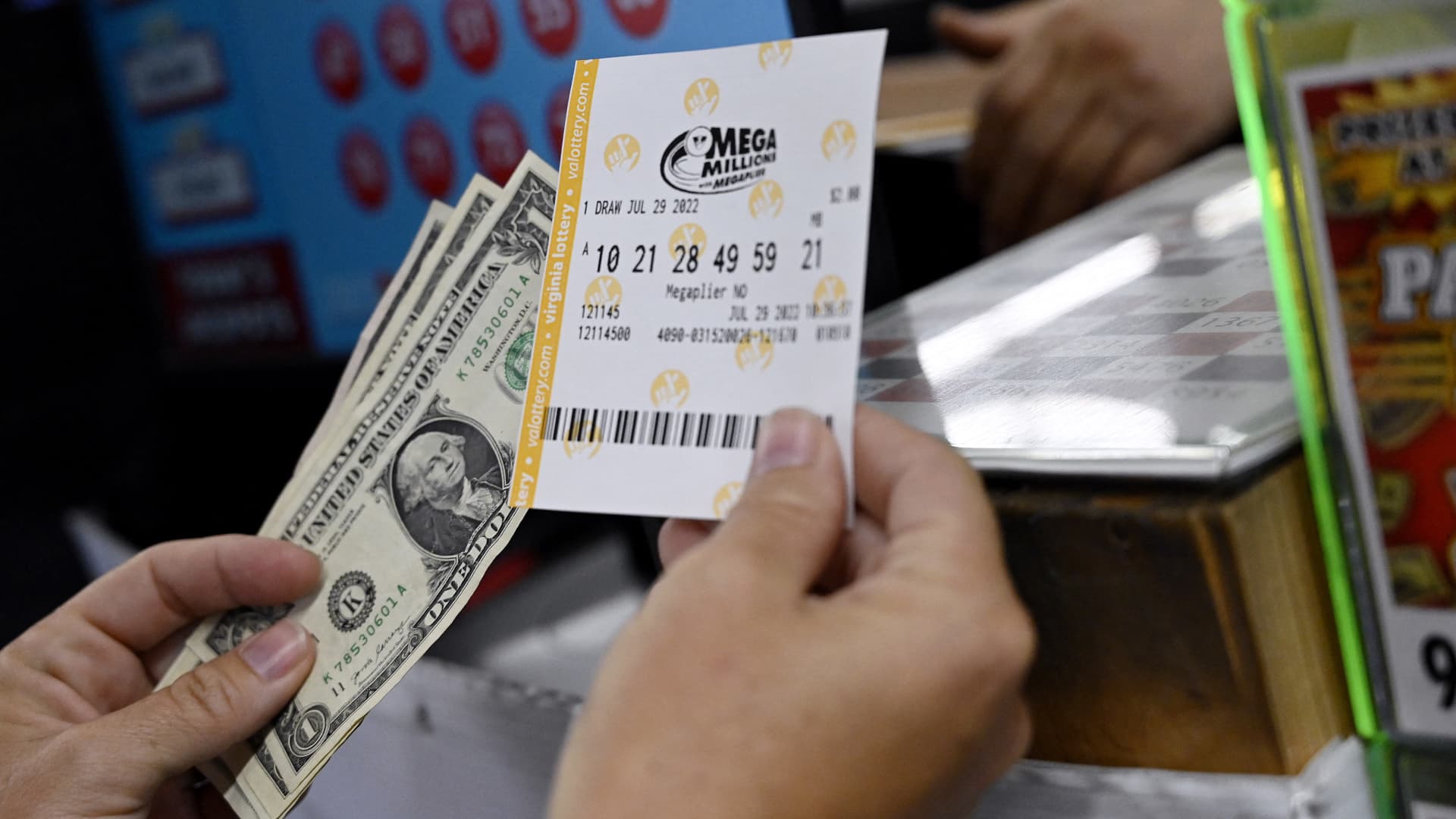After weeks without a winner, the Mega Millions jackpot is now $977 million — the sixth largest in the 22-year history of the game.
But the winnings you’d take home could vary by as much as $106 million depending on where you bought your ticket, due to state taxes.
Federal taxes are the same for everyone. Winnings are taxed 24% upfront, although the total tax bill will almost certainly be 37% when you actually file, since you’ll likely be in the highest tax bracket.
In contrast, taxes on lottery winnings vary widely between U.S. states. They typically range from 3% to 6%, but go up to 10.9% in New York — the most charged by any state participating in the lottery.
However, eight states don’t levy taxes on lottery winnings at all:
- California
- Florida
- New Hampshire
- South Dakota
- Tennessee
- Texas
- Washington
- Wyoming
If you live in any of these states, you will take home the highest payout possible. That means either $294,251,812 as a cash lump sum or a 30-year annuity totaling $616,764,360, according to usamega.com.
The lump sum payout in these states is $50.2 million more in than in New York, the most-taxed state.
Where you buy the ticket matters, too, as a winning ticket bought outside your home state could trigger taxes for the state in which the ticket was purchased. Generally speaking, your home state will require you to report out-of-state winnings, but will offer a credit or deduction for taxes already paid to a non-resident state.
That means if you live in California, but purchase a winning ticket in Oregon — which has state tax of 8% on jackpot winnings — your take-home amount would be worth about $46 million less than if you had purchased the ticket at home in California, which doesn’t charge state taxes on jackpots.
If you do happen to win the jackpot, consider hiring a tax professional. They can help you navigate the tax implications, including the best choice of payout and whether you owe out-of-state taxes.
The next Mega Millions drawing is scheduled for Friday,…
Read the full article here

Leave a Reply